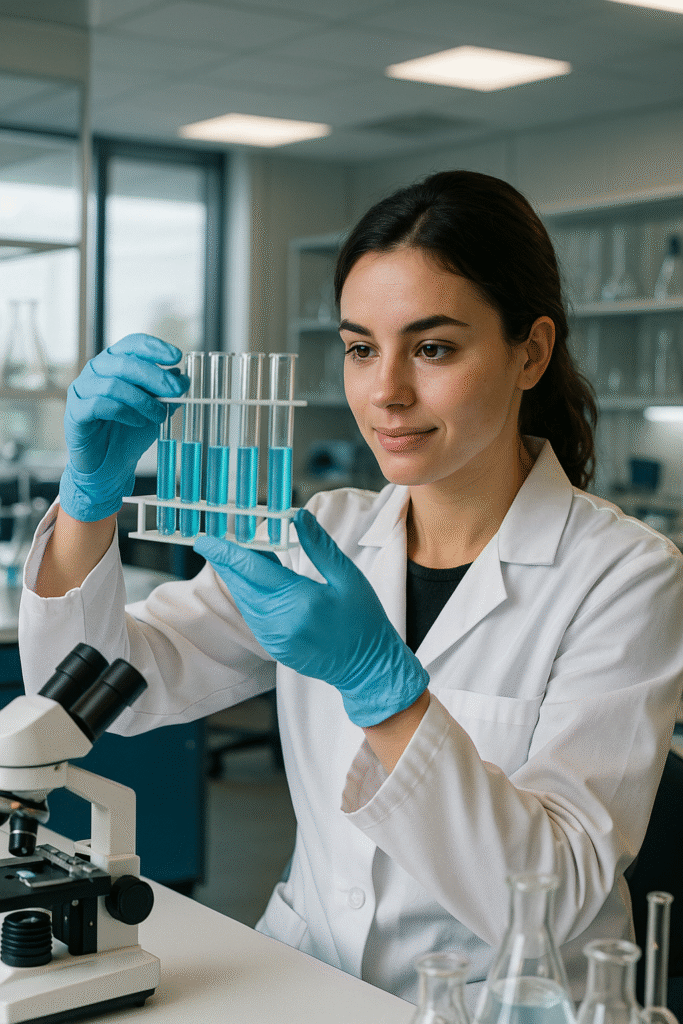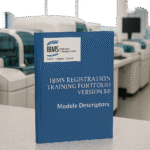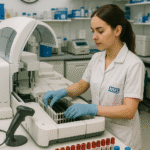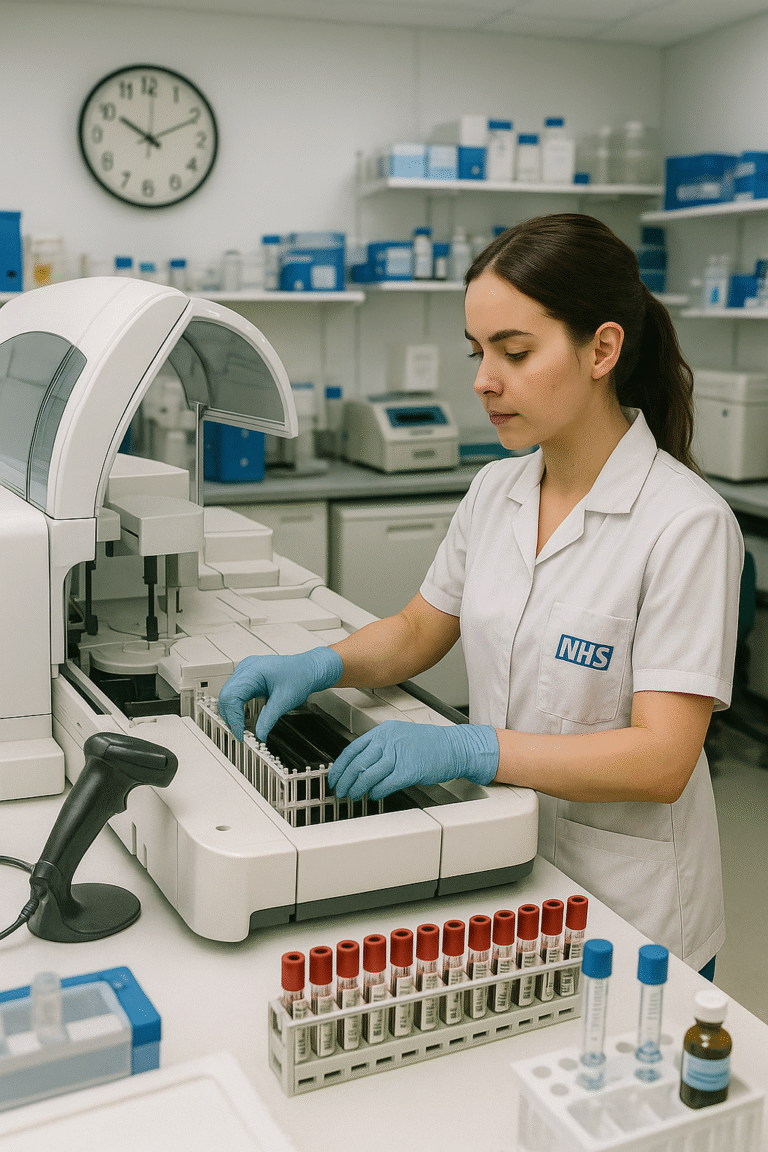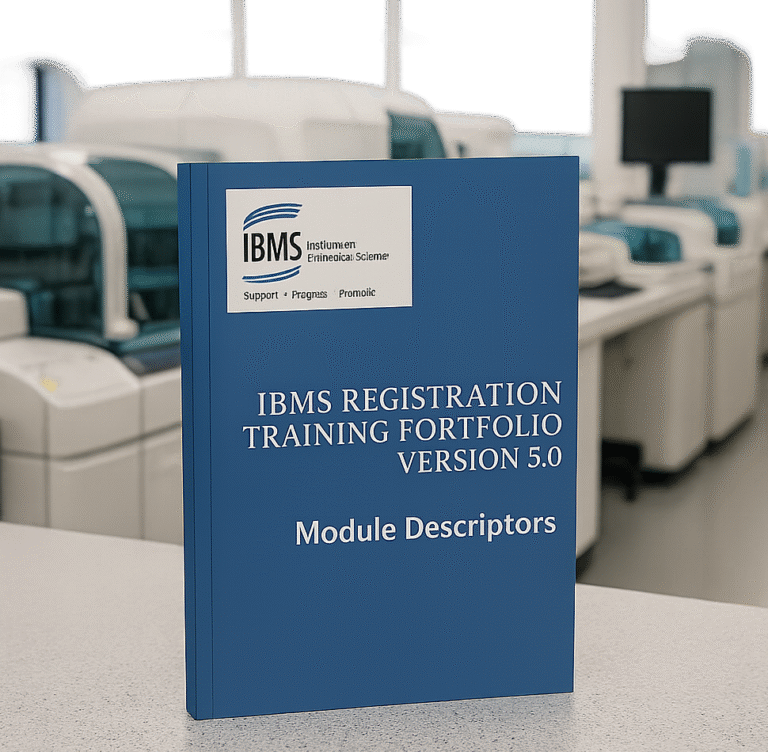Start your journey to becoming a biomedical scientist with an IBMS-accredited degree. Learn all entry routes, qualifications, and steps to register with the HCPC.
Introduction
If you’re dreaming of a career as a biomedical scientist in the UK, there is a clear and supported route—starting with an accredited degree. Let’s walk through Track 1: the journey from day one to HCPC registration!
What subjects will you study?
An IBMS-accredited biomedical science degree provides a strong foundation across a wide range of disciplines, including microbiology (virology included), clinical biochemistry, haematology and transfusion, immunology, cellular pathology, histopathology, and clinical genetics.
Where can you study?
Over 50 universities in the UK offer IBMS-accredited BSc Biomedical Science degrees. Choosing a course with integrated laboratory placements can significantly speed up your journey to HCPC registration.
What qualifications do you need?
GCSEs: Minimum grade 4 (or C) in English, maths and science.
A-levels: Typically require a grade B in biology and a grade C in chemistry, plus another subject.
Scottish Highers: BBBB across science subjects, plus passes in National 5 qualifications.
BTECs: Some universities accept the full BTEC Level 3 Extended Diploma in Applied Science, especially if key science units are included.
Why choose an IBMS-accredited degree?
Direct route to HCPC registration: These degrees are aligned with the HCPC’s professional standards and training expectations.
Balanced learning: Combines scientific theory with practical lab skills that are essential for the workplace.
Placement opportunities: Some degrees include clinical placements and allow you to complete your IBMS Registration Training Portfolio during the course.
What degree formats are available?
Standard BSc (3 years): No placement. You will need to complete your portfolio in a separate training post after graduation.
Sandwich BSc: Offers a placement year—check if this includes registration portfolio training.
Integrated BSc / Applied Healthcare Science: Includes portfolio completion during your degree, leading to the IBMS Certificate of Competence.
Degree Apprenticeship: Study while working in an NHS lab. Combines on-the-job training with academic learning, mapped to HCPC standards.
How do you register with the HCPC?
To be officially recognised as a Biomedical Scientist in the UK, registration with the Health and Care Professions Council (HCPC) is essential. You will need to:
1. Graduate from an IBMS-accredited or HCPC-approved degree.
2. Complete the IBMS Registration Training Portfolio in an approved laboratory.
3. Receive your IBMS Certificate of Competence.
4. Apply for HCPC registration.
Why Track 1 Is a Great Starting Point
Track 1 provides a structured path for aspiring biomedical scientists with clear benefits:
HCPC-aligned curriculum: You’ll meet all the educational standards required.
Hands-on experience: Clinical placements provide essential lab skills and real-world insight.
Flexible learning routes: Choose between full-time, part-time, or apprenticeship-based study.
Ready to Begin?
If you are ready to take the next step:
1. Explore the entry requirements of your preferred universities.
2. Choose courses marked with IBMS accreditation.
3. Consider programmes that offer built-in clinical placements.
4. Think ahead about completing your training portfolio.
Final Thoughts
Track 1 offers an ideal route for students passionate about science and healthcare. It combines strong academic learning with valuable hands-on experience, all designed to help you become HCPC-registered and ready for a fulfilling biomedical science career.
LabPathPro Tip
Look out for university open days and speak directly with course tutors or placement coordinators to find a degree that fits your goals.
Have questions about placements, apprenticeships, or how to choose the best degree for your journey? Leave a comment or explore more guides on LabPathPro.
Sign up for free class
It’s easy and free!


